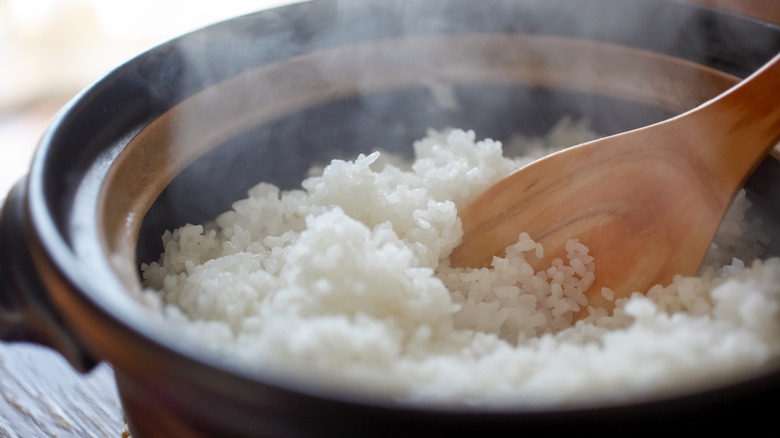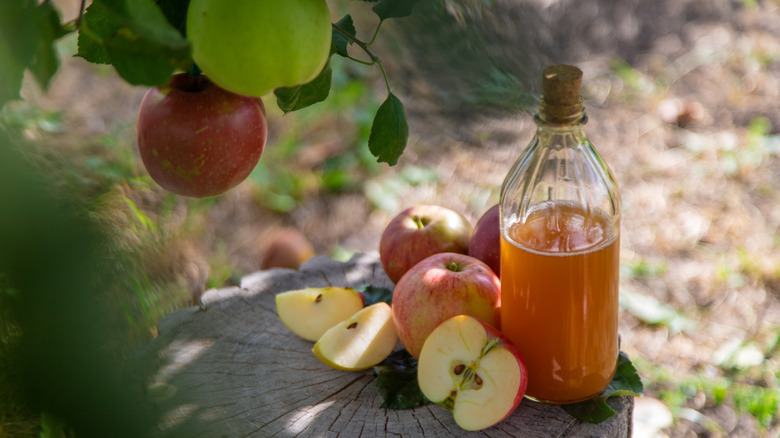Why Vinegar Is A Must-Have Ingredient For Cooking Perfect Rice
We may receive a commission on purchases made from links.
Cooking the perfect pot of rice can be tricky, but one simple, yet unexpected, addition can make all the difference: vinegar. While it may sound unconventional, adding a splash of vinegar to your rice offers multiple benefits that can enhance the texture, flavor, and overall quality of your dish. But you don't have to take our word for it. Chef and restaurateur Abishek Sharma of Madam Ji Ki Shaadi in NYC is also a fan of the vinegar trick. "Adding vinegar to rice while cooking helps break down starches, which helps create better separates of grains and makes the rice fluffier," he told us.
While it's a little bit magic and a little bit food science, vinegar really does prevent rice grains from clumping together. Its acidity alters the starches in the rice, reducing the excess stickiness, and ensuring each grain remains separate and fluffy. This trick really comes in especially handy when cooking long-grain rice like basmati or jasmine.
However, you don't have to stop at just plain' ol white vinegar, either. "White vinegar is neutral in flavor, apple cider vinegar adds a bit of sweetness, and rice vinegar works well and adds a subtle flavor," chef Sharma said. If anyone is a rice expert, it's Sharma, as his Bleecker Street restaurant actually does a multi-course tasting menu nightly, the Shaadi Tasting Menu, which is inspired by the glam and exuberance of Indian weddings.
The rules of preventing mushy rice
If you've ever had mushy rice, you know how unappetizing that can be. Here's where vinegar can also come to the rescue. Vinegar aids in maintaining a firm yet tender texture. This can be especially helpful for sushi rice or fried rice, where the grains really need to hold their shape without turning gunky. Whether you use an expensive rice cooker or the Instant Pot for your rice needs is up to you. As for how much vinegar you'll need, aim for "between ½ teaspoon to 1 teaspoon of vinegar per cup of rice," chef Abishek Sharma suggested.
If you're a fan of all-natural, DIY cleaning products, you've probably already got some white vinegar in your pantry. But keep in mind that cleaning vinegar and cooking vinegar are not quite the same, as their acidity concentration levels differ, and cleaning vinegar is more potent. And while vinegar is also an excellent ingredient for preserving or pickling foods, cooked rice definitely has a limit to its life. It should only be stored for four to six days, according to the USDA's FoodKeeper app.
So before it goes bad, use it! If you store and reheat leftover rice properly, it can make a great rice pudding, quick fried rice, or Spam musubi. Whether you're using a rice cooker, stovetop pot, or pressure cooker, this small and tangy addition will yield glutinously good results every time.

